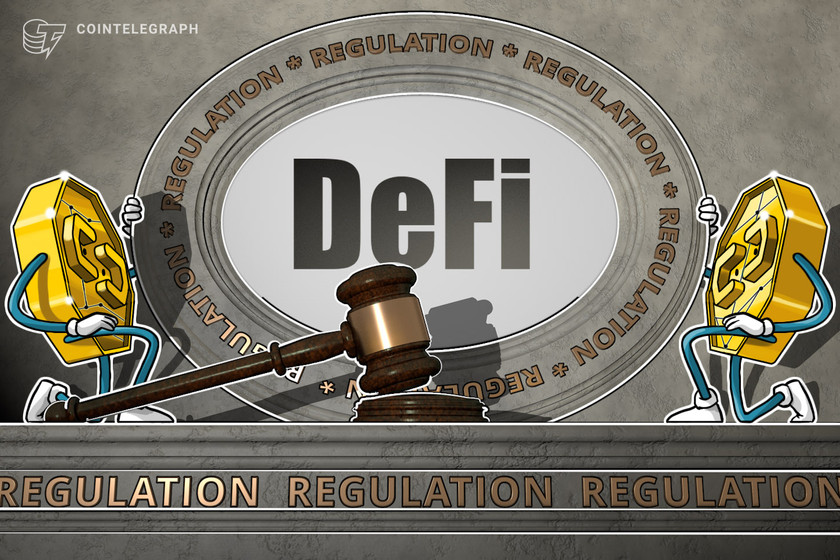Decentralized finance (DeFi), one of the fastest growing ecosystems in the cryptocurrency market, has long been a dilemma for regulators, given the decentralized nature of the space.
In 2022, United States regulators paid special focus to the nascent area with significant attention to ending the anonymous nature of the ecosystem.
DeFi protocols allow users to trade, borrow and lend digital assets without having to go through an intermediary. DeFi ecosystems by nature are decentralized with the majority of projects being run by automated smart contracts and decentralized autonomous organizations (DAOs). Most DeFi protocols don’t require heavy Know Your Customer (KYC) requirements, making way for traders to trade anonymously.
A leaked copy of a U.S. draft bill in June showed some of the key areas of concern for regulators including DeFi stablecoins, DAOs and crypto exchanges. The draft bill paid a special focus on user protection with the intention to eliminate any anonymous projects. The bill requires any crypto platform or service provider to legally register in the United States, be it a DAO or DeFi protocol.
Sebastien Davies, principal at institutional infrastructure and liquidity provider Aquanow, blamed regulators’ lack of technological understanding as the reason behind the regressive approach. He told Cointelegraph that events like the sanctioning of Tornado Cash users after the application was added to the Specially Designated Nationals list produced by the Office of Foreign Assets Control demonstrate a lack of technological understanding. He explained:
“I think the point that policymakers were trying to get across is that they’ll make it very difficult for developers/users of protocols that completely obfuscate transaction history and that they’re willing to act swiftly. Officials may eventually walk their stance back, but the precedent will be severe. Participants in the digital economy should continue to engage with regulators as often as possible to maintain a voice at the table to avoid these types of shocks and/or partake in the balancing dialogue after the fact.”
Another discussion paper by the U.S. Federal Reserve Board released in August claimed that even though DeFi products represent a minimal share of the global financial system, they may still pose risks to financial stability. The report noted that DeFi’s resistance to censorship is overstated, and transparency could be a competitive disadvantage for institutional…
Click Here to Read the Full Original Article at Cointelegraph.com News…
























